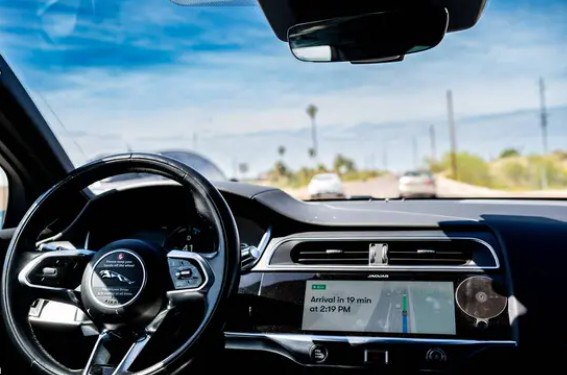Kazakhstan is developing a system of digital passports for its inter-city highways as part of broader efforts to prepare the country’s infrastructure for the eventual integration of autonomous vehicles. The initiative was announced by Minister of Transport Nurlan Sauranbayev during a recent government meeting. “Digital road passports are being developed, which will allow for the introduction of driverless cars in the future,” Sauranbayev said. “Road diagnostics are carried out annually using artificial intelligence technologies. In particular, the installation of automated measuring stations is continuing, up to 220 units, to preserve the road surface. To date, 71 units of such equipment have been put into operation.” Sauranbayev highlighted a related pilot project, “Smart Customs,” launched this summer at the Kazakhstan-China border crossing between Bakhty (Kazakhstan) and Pokitu (China). The initiative enables cargo to cross the border in unmanned trucks, a move expected to increase cargo throughput and speed up customs procedures. According to Sauranbayev, digital tools are expected to increase road capacity by 20% and reduce border crossing times to around 10 minutes. Speaking at a later briefing, Sauranbayev clarified that the driverless truck pilot, currently limited to select border crossings, is intended to be expanded across Kazakhstan’s entire external border by 2027. This includes crossings with EAEU member states such as Russia and Kyrgyzstan. “We have such a program. I think it will be very significant for Kazakhstan’s transit potential,” he said. Sauranbayev added that the use of unmanned trucks will help reduce logistics costs, as autonomous vehicles can operate continuously, potentially tripling delivery speeds. “Driverless taxis are already in use globally, and the transition to autonomous freight transport is only a matter of time,” he noted. “That is why, when we build roads, we are already integrating the necessary sensors to allow driverless vehicles to travel freely across Kazakhstan.” Simultaneously, the government is upgrading internal border checkpoints. Work on 37 facilities is scheduled for completion by the end of 2027. So far this year, 13,000 kilometers of road have undergone construction or repairs, part of a national network that spans approximately 95,000 kilometers. To alleviate pressure on the state budget, Kazakhstan is expanding its toll road network. The KazToll system has collected $156.5 million to date. The Ministry of Transport reported a 20.7% year-on-year increase in transport services in the first ten months of 2025. Road transport accounted for 288 million tons of cargo, up 1.7% from the same period last year. Transit traffic rose 5% to 29.4 million tons. Currently, transport companies from 42 countries operate transit routes through Kazakhstan. “Automated load measurement stations on highways have increased both the detection of violations and budget revenues tenfold,” Sauranbayev added. “As a result of integration with the General Prosecutor’s Office, more than 10,000 fine payment orders were issued in the first five months of this year.” In 2024, Kazakhstan launched two major infrastructure projects: the Trans-Kazakhstan railway corridor and the Center-West highway, which will connect Astana to the country’s western regions.






